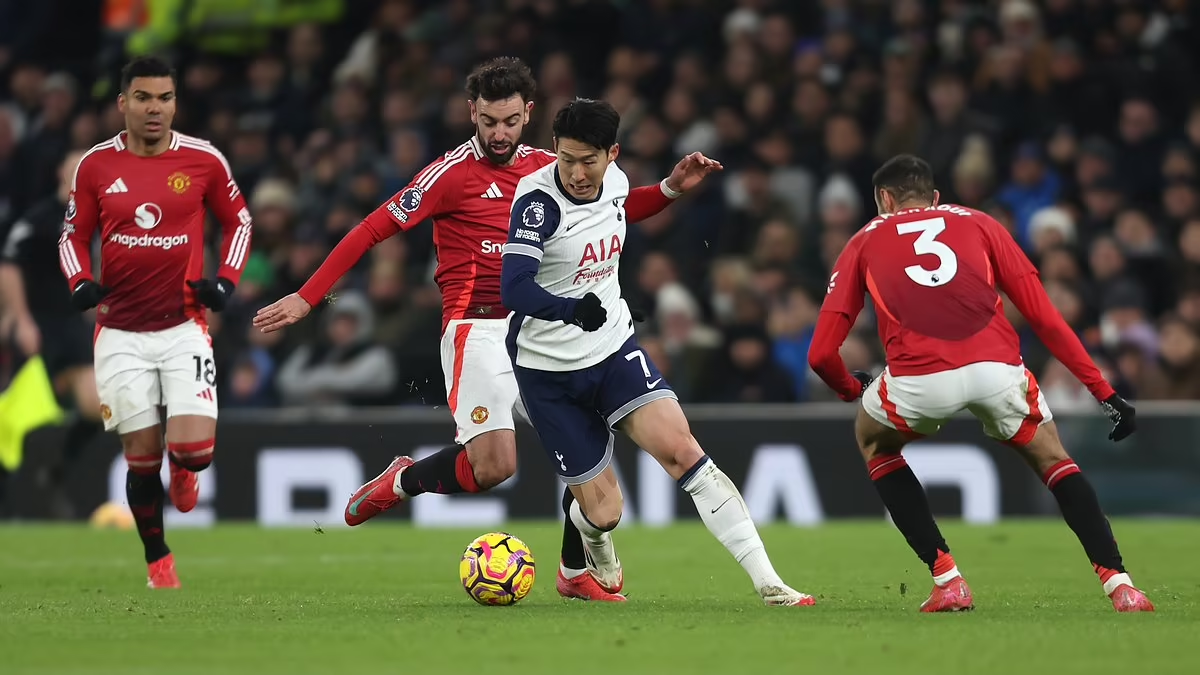Manchester United’s crushing 1-0 defeat to Tottenham in the Europa League final has plunged the club into a troubling new chapter, leaving them without European football next season and facing their worst league finish in 50 years.
Brennan Johnson’s decisive goal just before halftime sealed a victory for Spurs, marking their fourth win over United, highlighting the Red Devils’ season-long struggles in attack and defence.
The loss in Bilbao is a stark reminder of how far United have fallen from the dominance they enjoyed under Sir Alex Ferguson, who guided them to the peak of English and European football.
Next season will mark their first absence from continental competition since 2014/15, with six Premier League rivals set to compete in Europe’s top club tournaments.
Ruben Amorim took charge in November, replacing Erik ten Hag with a mandate to rebuild.
However, the Portuguese manager has found it challenging to arrest United’s decline, securing just six Premier League wins as the club slid to 16th place with 39 points—raising fears of an even worse campaign ahead.
United have lost 21 matches in all competitions this season, their highest total since the 1973/74 relegation season.

Through league struggles, Amorim appeared to prioritise the Europa League, where United remained unbeaten until the final.
Their dramatic comeback against Lyon in the quarter-finals and comfortable semi-final victory over Athletic Bilbao briefly rekindled hopes.
Yet, the final trip to northern Spain proved too much, with United’s shortcomings exposed once again.
Football finance expert Kieran Maguire described the final as “the most important match in the club’s history” in monetary terms.
Qualification for next season’s Champions League would have brought in over £100 million, crucial for a club battling financial constraints. These funds would have underpinned the squad overhaul necessary to restore competitiveness and attract top players to Old Trafford.
Now, with no European football, Amorim faces the daunting task of rebuilding under tighter budget restrictions.
The club’s co-owner, Jim Ratcliffe, has aggressively pursued cost-cutting, including hundreds of job cuts, to stem financial losses. This conservative approach means United will likely need to sell players before investing in new signings, complicating Amorim’s vision for the team.
Despite the setbacks, the club hierarchy remains publicly supportive of Amorim and his tactical approach, centred on a 3-4-3 formation.
Yet, the absence of European competition and financial limitations mean United will have to work harder to attract quality recruits, especially as rivals with Champions League football offer greater allure.
Once again, Manchester United must return to the drawing board, confronting uncomfortable truths about their current status while seeking to rebuild for a brighter future.


 Trending
Trending 